Research suggests that a regular journaling practice can help you process emotions and experiences, gain clarity about your life, and reduce stress. But can keeping a journal improve your sleep? In fact, yes! By using a journal to track your sleep, you can start to identify issues and patterns that point to lifestyle changes that could help you fall asleep faster or sleep more soundly. And because journaling can be stress-relieving, keeping a sleep journal could also help you find the calm headspace that’s necessary for sleep.
So how do you find the best sleep journal for your needs? Start by thinking about whether you want to track a specific sleep-related factor, such as food habits or exercise. Then look for a sleep journal with prompts about that factor. Also consider whether you’re committed enough to answer lots of prompts every day, or if you want a journal that’s less structured. Finally, think about preferences when it comes to cover design, number of pages, and so on. Then consult our list of best journals for better sleep!
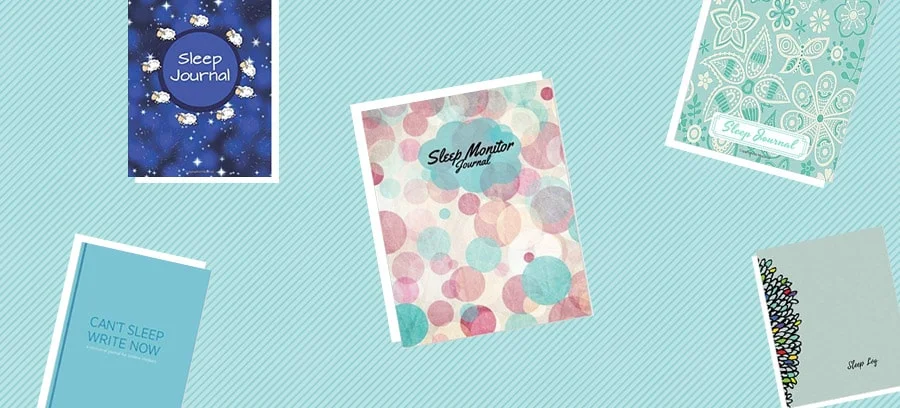
Editor’s Choice
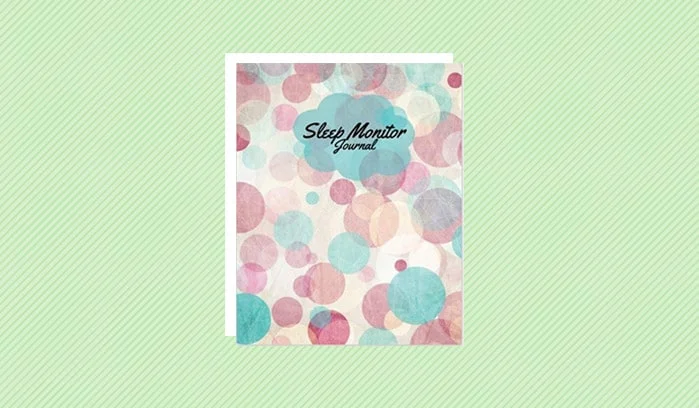
Signature Planner Journals Sleep Monitor Journal
Pros:
- The journal contains enough pages to track your sleep for up to 100 days.
- The detailed logs feature prompts to track a wide range of sleep-related factors such as the time you went to bed, activities you did before bed, the length of time you slept, what woke you up, exercise, medications, food, alcohol and caffeine choices, and more.
- This is a very budget-friendly sleep journal.
- The book includes 10 notes pages, so there’s plenty of space to record dreams or extra info.
One con? The page designs aren’t the most modern or visually pleasing.
Signature Planner Journals Sleep Monitor Jour

The detailed Signature Planner Journals Sleep Monitor Journal offers prompts to track a wide range of sleep-related factors. This budget-friendly log includes 100 daily tracking pages along with 10 blank pages for recording notes, ideas, dreams, and so on.
Sleepopolis Score
3.80 / 5
Contender

Graceland Journals Sleep Journal
Pros:
- The detailed sleep log includes prompts to track everything from sleep assessments to what wakes you up, what helps you fall asleep, food and beverage consumption, medications taken, time slept, and more.
- The journal is available in several cover designs, so you can choose according to your personal aesthetic.
- This is a very budget-friendly sleep journal.
One con? The log pages don’t provide a ton of room for writing detailed thoughts or responses.
Graceland Journals Sleep Journal

The budget-friendly Graceland Journals Sleep Journal includes daily prompts to track all kinds of details related to sleep. It’s available in several cover designs, so you can choose according to your preferences.
Also Consider
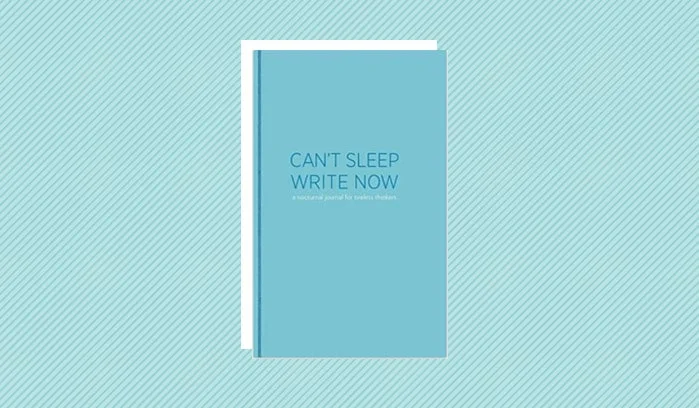
Lucien Edwards Can’t Sleep, Write Now: A Nocturnal Journal for Tireless Thinkers
Pros:
- This unique sleep journal focuses less on sleep tracking and more on providing writing prompts to engage your mind when you’re struggling to sleep.
- Writing prompts include everything from why you can’t sleep to “middle-of-the-night brilliant ideas,” “nighttime reading list,” “tricks for falling asleep,” and much more. It’s a more creative way to relate to sleep issues.
- The book includes blank pages so you can fill them in with your own thoughts if you don’t feel like responding to a prompt.
Cons:
- This isn’t a conventional sleep log, and it won’t help you track the intricate details of your sleep habits.
- Because many of the pages are blank, some people might feel like they didn’t exactly get what they paid for.
Lucien Edwards Can’t Sleep, Write Now: A Noct
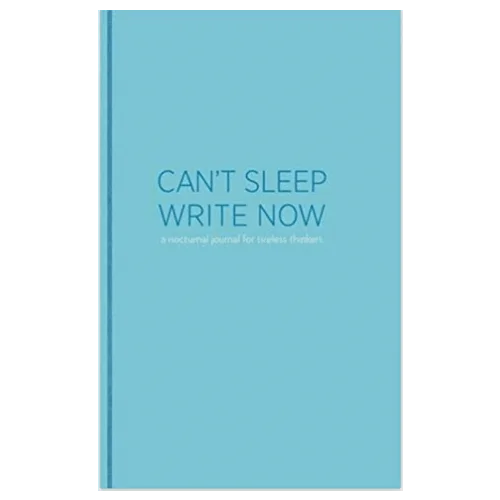
The unique Lucien Edwards Can’t Sleep, Write Now journal provides a variety of creative prompts to help use your time constructively when you’re struggling to sleep. It also offers plenty of blank pages for journaling and other creative endeavors.
Sleepopolis Score
4.20 / 5
Honorable Mention
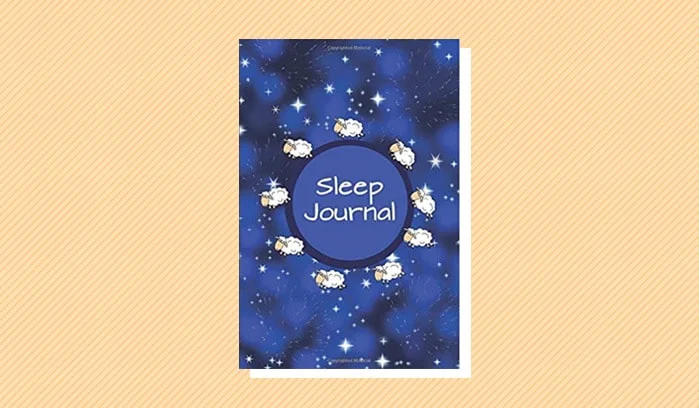
Premise Content Sleep Journal
Pros:
- The daily sleep tracker prompts you to record everything from what time you went to bed to how long it took you to fall asleep, how many times you woke during the night, nighttime activities, eating patterns, how rested you feel each morning, and more.
- In addition to the daily tracking pages, the journal also includes week-at-a-glance pages and extra journal pages for recording dreams, ideas, and so on.
- The journal comes in several color options, so you can choose according to your aesthetic preferences.
- The prompts are straightforward and easy to follow.
Cons:
- The journal is only meant to be used for eight weeks, so it doesn’t have enough pages to track your sleep over a longer time period.
- There’s not a ton of room to record responses. People with large handwriting might find this especially annoying.
Premise Content Sleep Journal

The Premise Content Sleep Journal offers daily sleep tracker pages for recording a variety of factors related to sleep. Along with daily prompts, the journal features week-at-a-glance pages and extra journal pages for recording dreams and ideas.
Sleepopolis Score
4.50 / 5
Best Bargain
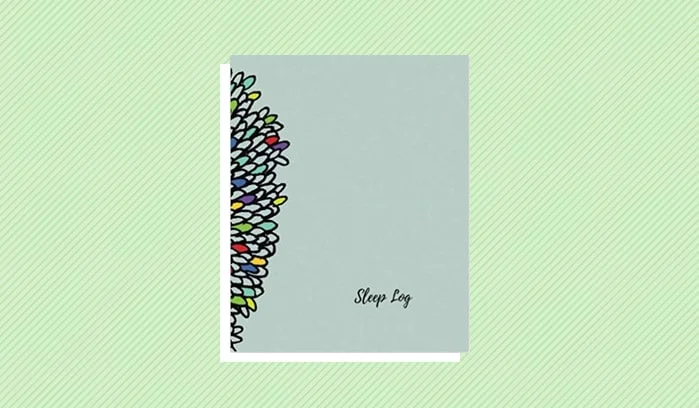
Journals for All Sleep Log
Pros:
- This is a very budget-friendly sleep journal.
- The journal allows you to track your sleep for up to 100 days, which should be ample time to identify patterns, issues, and so on.
- The detailed log includes prompts to track everything from when you went to bed and fell asleep to what you did between going to bed and falling asleep, the number of times you woke up at night, when you woke up, eating and exercise habits, and much more.
One con? The pages don’t offer a ton of room to write detailed responses to prompts.
Journals for All Sleep Log

The budget-friendly Journals for All Sleep Log lets you track your sleep for up to 100 days. The detailed log features prompts about everything from sleep quantity and quality to exercise and eating habits.
How We Picked
To select our contenders for this roundup of best journals for sleep, we emphasized the following factors.
Cover Design
People are more likely to write in a journal every day if they enjoy looking at it. For that reason, we chose sleep journals with a variety of cover designs as well as several journals that offer multiple designs to choose from.
Page Layout
We looked for journals with easy-to-follow page layouts, whether in the form of a daily sleep tracker, week-at-a-glance summaries, or journaling prompts. We also emphasized options that provide some flexibility in their page layout by including extra sections or pages for jotting down notes and ideas related to sleep.
Log Contents
We focused on options that recognize the multi-faceted nature of sleep by tracking a range of factors. These factors might include food and beverage timing and choices, exercise habits, medications taken, as well as the more obvious topics such as the amount of sleep obtained, quality of sleep, and so on. By tracking a variety of factors related to sleep, you’ll be able to develop a more comprehensive picture of your sleep and overall health, identify significant patterns, and realize opportunities for improving your sleep.
Versatility
While many of these sleep journals offer pages for daily tracking of sleep and factors related to it, that style might not work for everyone. For that reason, we prioritized journals that have some room for versatility, whether by including blank pages, notes sections, weekly versus daily logs, or (as in the case of the writing prompt journal) more creative approaches to sleep issues. There should be an option to suit most types of journalers and sleep trackers.
Sleepopolis Buying Tips
Still trying to decide on the best sleep journal for your needs? Consider the following:
- Do you want a daily sleep log? Recording everything related to your sleep requires consistent commitment. If you’re not up for the task, consider a sleep journal that’s a little less structured.
- Is cover design important to you? If so, that’s going to be a quick way to narrow down your options.
- Are you looking to track something in particular? For example, if you’re especially interested in the relationship between your eating habits and sleep, choose a sleep journal with prompts about eating. Same goes for any other sleep-related factor.
The best sleep journal will help you obtain better sleep over time by allowing you to track sleep quantity and sleep-related behaviors. In the process, you’re likely to identify patterns around the relationship between various lifestyle choices and sleep. This will let you address issues that could be interfering with your sleep and emphasize behaviors that improve it. That’s a win that makes the effort of sleep journaling well worth it!
FAQs
What is a sleep journal?
A sleep journal is a notebook that contains prompts to help you think about your sleep habits. Some sleep journals feature daily logs that track a ton of sleep-related factors, such as the times you went to bed and woke up, eating and exercise habits, and more. Other sleep journals are less structured and might supply writing prompts that folks can respond to when they’re having trouble sleeping.
Why use a sleep log?
There’s evidence that tracking your sleep with a sleep log can help you enjoy better sleep over time. That’s because tracking your sleep lets you identify patterns around sleep issues and successes. This way, you can tailor your lifestyle to avoid the factors that impair sleep and embrace the decisions that lead to better Zzzs.
What lifestyle factors can affect sleep?
A number of lifestyle factors can affect your ability to fall and stay asleep. These include the activities you engage in before bed, whether you exercise and when, any medications you’re taking, what and when you eat, your exposure to natural sunlight and nighttime artificial light, and more. Because so many lifestyle factors can affect your sleep, a sleep journal can be really useful for keeping track of all these factors.

























